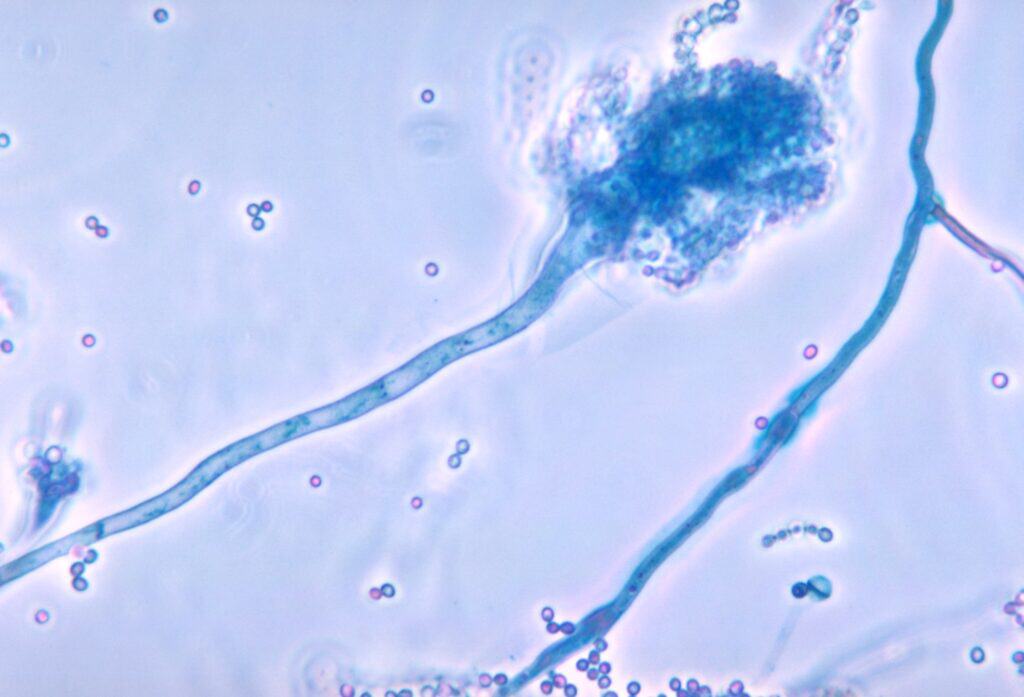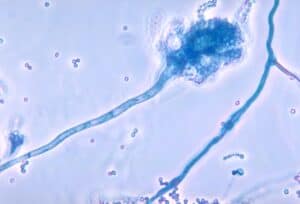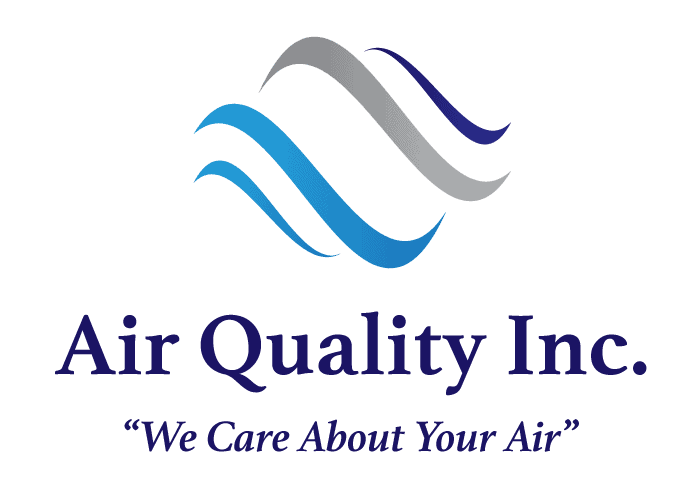Welcome to our latest discussion on a topic that hits close to home—quite literally. Mold isn’t just an unsightly annoyance; it’s a silent antagonist to our health, lurking in damp corners, behind walls, and under floors. Today, we’re exploring how this common household issue can lead to chronic health problems and what you can do to protect yourself and your loved ones. Let’s unravel the mysteries of mold together, with insights backed by science and practical advice from Air Quality Consultants (AQC), your allies in maintaining a healthy indoor environment.
Mold: A Common Foe with Uncommon Impact
Mold is a type of fungus that thrives in moist environments. It reproduces through tiny spores that float through the air, invisible to the naked eye. While mold plays a crucial role in nature by breaking down dead organic matter, its presence indoors can be a major health concern.
The Health Implications of Indoor Mold Exposure
When mold spores are inhaled, they can cause a variety of health issues, particularly for those with allergies, asthma, or compromised immune systems. But what about long-term exposure? Research indicates that prolonged exposure to mold can lead to or exacerbate chronic health problems.
- Respiratory Issues: Persistent coughing, wheezing, and breathing difficulties are common symptoms associated with long-term mold exposure.
- Allergic Reactions: Mold can trigger severe allergic responses, including runny nose, red eyes, and skin rash.
- Immune System Impact: Continuous exposure can weaken the immune system, making you more susceptible to other infections and illnesses.
- Neurological Symptoms: Some studies suggest a link between mold exposure and neurological problems, although more research is needed to fully understand this connection.
Identifying Mold in Your Home
Detecting mold isn’t always straightforward. While visible mold can be easy to spot, hidden mold might go unnoticed until it’s a significant problem. Look out for musty odors, unexplained health symptoms, or signs of water damage—these can all indicate the presence of mold.
The AQC Approach to Mold Mitigation
At Air Quality Consultants, we believe in a proactive approach to mold management. Here’s how you can tackle mold issues effectively:
- Regular Inspections: Regularly check common mold hotspots in your home, such as bathrooms, kitchens, and basements.
- Control Humidity: Use dehumidifiers or air conditioners to keep indoor humidity levels below 60%.
- Prompt Repairs: Address leaks and water damage promptly to prevent mold growth.
- Professional Mold Testing and Remediation: If you suspect a mold issue, it’s crucial to get professional testing and remediation. AQC offers comprehensive mold assessment and removal services, ensuring your home is not just mold-free but also safeguarded against future infestations.
Empowering You to Breathe Easier
Understanding the link between mold exposure and chronic health issues is the first step in creating healthier living spaces. By staying informed and proactive, you can significantly reduce the risk of mold-related health problems and enhance your overall well-being.
Remember, you’re not alone in this battle against mold. Air Quality Consultants is here to provide expert guidance, services, and support to ensure your indoor air quality is the best it can be. Together, we can create a safer, healthier environment for you and your family.
Interested in learning more about how to protect your home and health from mold? Visit AQC’s website or contact us for personalized advice and professional services. Let’s make your indoor air as fresh and clean as the great outdoors!




